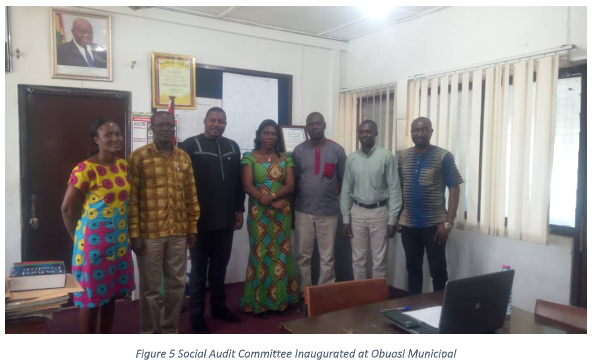Empowering Citizens: The MLGRD/GIZ Governance Component
In the journey towards creating more inclusive and effective governance, the collaboration between the Ministry of Local Government and Rural Development (MLGRD) and the German Agency for International Cooperation (GIZ) has yielded significant strides. One such endeavor is the MLGRD/GIZ Support for Decentralization Reforms, with a special focus on enhancing citizen participation and social accountability at the district level.
Aiming for Greater Citizen Satisfaction
At the heart of this initiative is the unwavering commitment to promote citizen engagement activities within the assembly. The ultimate goal is to ensure that citizens are not just passive observers but active participants in the decisions that shape their communities. When citizens are engaged, their satisfaction with the district assembly’s development efforts naturally increases.
The MLGRD/GIZ project recognizes that true development can only be achieved when it reflects the aspirations and needs of the people it serves. This means going beyond mere service delivery and involving citizens in the planning and decision-making processes.
Building Social Audit Committee Capacity
One of the pivotal elements of this project is the development of the social audit committee. In the Obuasi Municipal area, the capacity of this committee was significantly bolstered, and it was officially inaugurated. The social audit committee plays a critical role in ensuring that the claims of organizations regarding their social performance are not just words but meaningful actions.
Who Makes Up the Committee?
The social audit committee is a diverse and representative group. It consists of three local citizens from the municipal area, a representative from a Civil Society Organization (CSO), and a focal person from the assembly. This composition ensures that the committee’s work is rooted in the local context, benefits from the expertise of the CSO, and maintains a strong connection with the assembly.
Ensuring Transparency and Accountability
The social audit committee acts as a bridge between the organizations and the community. Its primary function is to provide assurance that the claimed social performance is not just a box to tick but a genuine commitment to social responsibility.
By holding organizations accountable for their social promises, the committee ensures transparency and builds trust within the community. When citizens see that their concerns are taken seriously, their trust in the local governance structures is reinforced.
A Brighter Future Through Collaboration
The MLGRD/GIZ Governance Component is a testament to the power of collaboration and citizen participation. It is a step towards a future where governance is not a top-down process but a collaborative effort. It’s a future where citizens are not just recipients of services but active partners in shaping their communities.
As this project unfolds, we look forward to witnessing the positive impact it will have on citizen satisfaction, social accountability, and the overall development of the Obuasi Municipal area. Together, we can build a brighter and more inclusive future.
Read On:

